
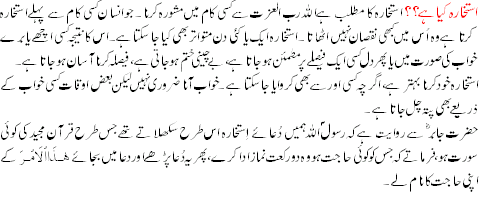
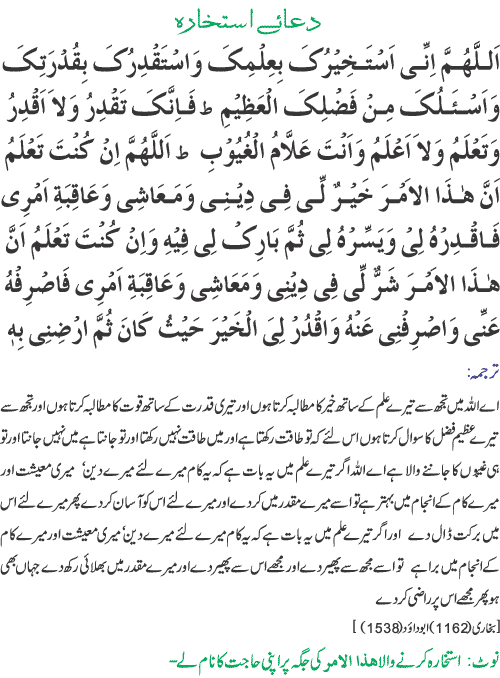
Breaking The Fast (Iftaar)
1. When does the Fasting person Break his Fast?
Allah, the Most High, says: “…then complete your Sawm (fast) till the nightfall…”[2]
Allah’s Messenger (peace be upon him) explained this to mean the approach of the night, the passing away of the daylight, and the disappearance of the sun below the horizon.[3]
Narrated Umar bin Al-Khattab (may Allaah be pleased with him): Allah’s Apostle (peace be upon him) said, “When night falls from this side and the day vanishes from this side and the sun sets, then the fasting person should break his fast.”[4]
Narrated Amr ibn Maimoon al – Awdee (may Allaah be pleased with him): The Companions of Muhammad (peace be upon him) were the earliest of people in beginning the Iftaar and the lastest in taking Suhoor.[5]
2. Hastening to Break the Fast
A Muslim should break the fast as soon as the sun sets and do not be bothered by the bright redness remaining upon the horizon. In this, he would be following the Sunnah of your Messenger (peace be upon him) and differing from the Jews and Christians since they delay breaking the fast until the stars start to appear.[6]
2.1 Hastening to Break the Fast brings about good.
Narrated Sahl bin Sad (may Allaah be pleased with him): Allah’s Apostle said, “The people will remain on the right path as long as they hasten the breaking of the fast.”[7]
Narrated Aboo Hurayrah (may Allaah be pleased with him): The Prophet (peace be upon him) said, “The Deen will not cease to be uppermost as long as the people hasten to break the fast since the Jews and Christians delay it.”[8]
2.2 Breaking the Fast before praying the Maghrib prayer
Narrated Anas (may Allaah be pleased with him): “The Prophet (peace be upon him) used to break his fast with fresh dates before Salaat al-Maghrib. If fresh dates were not available, he would eat dried dates and if dried dates were not available, he would break his fast by drinking a little water.”[9]
2.3 A Warning to Those who Break the Fast Before the Time of Iftaar
Although we should hasten to break the fast, breaking the fasting before the correct time is sinful. Even though only a part of the following hadith is relevant here, I thought I would add the full hadeeth so that we can reflect on some of the horrors of some of our actions.
Narrated Aboo Umaamah al – Baahilee (may Allaah be pleased with him): Allah’s Messenger (peace be upon him) said, “While I was sleeping, two men (angels) came to me, held my upper arms and took me to a rough mountain. They said,” Climb.” I said,” I cannot climb it.” They said, ” We will make it easy for you.”
He (peace be upon him) continued: “We moved on until I saw some people who were suspended by their Achilles’ tendons, their cheeks cut and gushing blood. I asked, “Who are those?” The replied, “Those are the ones who break their fast when it is not permissible.” 10]
3. With what should one break his fast?
Narrated Anas (may Allaah be pleased with him): “The Prophet (peace be upon him) used to break his fast with fresh dates before Salaat al-Maghrib. If fresh dates were not available, he would eat dried dates and if dried dates were not available, he would break his fast by drinking a little water.”[11]
Giving something sweet to an empty stomach leads to its acceptance and that the body takes benefit from it, especially a healthy body which will be strengthened by it. As for water, then the body becomes somewhat dehydrated through fasting and so if it is moistened with water then it can take completed benefit from the food. And know that the dates and water contain various blessings and specially qualities which have an effect upon the hearts and in purifying them, which will be known only to those who follow (the Sunnah).[12]
Consider how far our practice is from that of our Prophet (peace be upon him)! In our fast-breaking menu, there are all kinds of fruits and additional items. These items are fried or cooked with a lot of herbs and spices. This may result in causing an upset stomach, which may eventually result in ill health. Instead, we have to adopt a more moderate and comfortable way of breaking our fast by which a rich reward in the Hereafter and a physical advantage in this world will also be achieved.[13]
4. Times of Responding to the Supplication
Those believers who strive and control themselves, abstaining from those things restricted, such as food, drink, and sexual desire, all day long, to obtain the pleasure of Allah, will definitely have a special status with Allah. This responding to his invocation when breaking his fast is more likely to occur.[14] So seize this opportunity and call upon Allah being sure that it will be answered, and know that Allah does not respond to a heedless and inattentive heart. Call upon Him with supplications for anything good, and hopefully, you will attain the good of this like and the Hereafter.[15]
Narrated Abdullah ibn Amr ibn al – Aas (may Allaah be pleased with him): Allah’s Messenger (peace be upon him) said, “Indeed there is for the fasting person when he breaks his fast, a supplication which is not rejected.”[16]
5. What should a person say when breaking the fast?
There is a well-known invocation related in the hadith in this respect:
“Allaahumma laka sumtu wa – ala Rizqika Aftartu”
(O Allaah! For You I have observed fasting and with Your provisions do I break my fasting)
However, this hadeeth is NOT AUTHENTIC.[17] This shows you that you should not trust everything you find on things like Islamic calendars. As much as we hope that the people printing these would do some research on what they put, it seems like they are more concerned with advertising products than anything else! And to make things worse, some people turn a blind eye to the truth and ignorantly follow the unauthentic hadith over the authentic!
The authentic hadith is as follows:
“Dhahaba adh – dhamau wab – tallatil – urooqa wa thabatal – ajru in shaa Allaah”
(The thirst has gone, the arteries are moist, and the reward is set, Allaah willing)[18]
6. Providing food for the fasting person to break his fast.
The Prophet (peace be upon him) said: “Whoever gives food to a fasting person with which to break his fast, will have a reward equal to his, without it detracting in the slightest from the reward of the fasting person.”[19]
The rich reward of helping others break their fast can be achieved to one’s best ability and is not required for people to overburden themselves in this regard.[20]
And It is Only Allah Who grants success. May Allah Exalt the mention of His slave and Messenger Muhammad (peace be upon him), and render him, his household and companion safe from Evil.
Compiled by Imran Ayub[1]
References:
× Fasting In Ramadaan by Sheikh Saleem al – Hilaalee and ‘Alee ‘Abdul Hameed, al – Hidaayah Publishers, 1999
× Islamic Studies Book 3, by Dr. Abu Ameenah Bilal Philips, IIPH publishers, 2005
× Ramadaan: Rules and Related Issues, by Hafiz Salah – ud – Din Yusuf, Darussalam publishers, 199
× The Fragile Vessels – Rights and Obligations between the Spouses in Islam, by Muhammad Mustafaa al – Jibaaly, al – Kitaab and as-Sunnah Publishing, 2005
[1] From, ‘Fasting in Ramadaan’, p. 56 – 67 and ‘Ramadaan: Rules and Related Issues’, p. 12 – 15
[2] The Noble Qur’an, Soorah Al-Baqarah 2:187
[3] ‘Fasting in Ramadaan’, p. 56
[4] (Agreed Upon); Saheeh Bukhaari, Volume 3, Book 31, Number 175; Saheeh Muslim, Book 006, Number 2421
[5] ‘Abdur – Razzaq, al – Musannaf, Number 7591; Declared Saheehvby Hafidh Ibn Hajaar in al – Fath, 4/199; and al – Haithumee in Majma’ uz – Zawaaid, 3/154; as quoted in ‘Fasting in Ramadaan’, p. 56
[6] ‘Fasting in Ramadaan’, p. 57
[7] (Agreed Upon); Saheeh Bukhaari, Volume 3, Book 31, Number 178; Saheeh Muslim, Book 006, Number 2417; Sunan Aboo Daawood, Vol. 2, Number 2346
[8] Sunan Aboo Daawood, 2/305; Ibn Hibaan; Its Isnaad is Hasan; as quoted in ‘Fasting in Ramadan’, p. 58
[9] Sunan at – Tirmithee, 3/70; Sunan Aboo Daawood, 2/306; Ahmad, 3/163; Saheeh Ibn Khuzaymah, 3/277, 278; through two chains from Anas, and its isnaad is Saheeh; as quoted in ‘Fasting in Ramadaan’, p. 61; Classed Saheeh by Sheikh al – Albaanee in al-Irwa’, Number 922; as quoted in ‘Ramadaan: Rules and Related Issues’, p. 13
[10] Saheeh Ibn Khuzaymah, Number 1986; Ibn Hibbaan and others. Verified to be Saheeh by Sheikh al – Albaanee in Saheeh ut – Targheeb, Number 991; as quoted in ‘Fasting in Ramadaan’, p. 91 – 92
[11] Sunan at – Tirmithee, 3/70; Sunan Aboo Daawood, 2/306; Ahmad, 3/163; Saheeh Ibn Khuzaymah, 3/277, 278; through two chains from Anas, and its isnaad is Saheeh; as quoted in ‘Fasting in Ramadaan’, p. 61; Classed Saheeh by Sheikh al – Albaanee in al-Irwa’, Number 922; as quoted in ‘Ramadaan: Rules and Related Issues’, p. 13
[12] ‘Fasting in Ramadaan’, p. 61
[13] ‘Ramadaan: Rules and Related Issues’, p. 13
[14] ‘Ramadaan: Rules and Related Issues’, p. 13 – 14
[15] ‘Fasting in Ramadaan’, p. 61
[16] Sunan Ibn Maajah, 1/557; al – Haakim, 1/422; Ibn as – Sunnee, Number 128; at – Tayaalisee, Number 299; through two chains of narration from him and al – Boosairee said: 2/81: This isnaad is Saheeh, its narrators are reliable; as quoted in ‘Fasting in Ramadaan’, p. 61. Classed Saheeh by Sheikh al – Albaanee in Saheeh Sunan ibn Maajah, Number 1432; as quoted in ‘Ramadaan: Rules and Related Issues’, p. 14
[17] It is rated as Da’eef by Sheikh al – Albaanee in Irwaa al – Ghaleel, Vol. 4, Number 919; as quoted in ‘Islamic Studies Book 3’, p. 198
[18] Sunan Aboo Daawood, Vol. 2, Number 2350; al – Baihaqee, 4/239; al – Hakakim, 1/422; Ibn Sunnee, an – Nasaa’ee in Amalul – Yawm, 269; Daraqutnee, who declared its isnaad to be Hasan, and it is as he said (as quoted in ‘Fasting in Ramadaan’, p. 62); Graded Hasan by Sheikh al – Albaanee in Saheeh Sunan Aboo Daawood, Vol. 2, Number 2066 (as quoted in ‘Islamic Studies Book 3’, p. 198) and in Irwaa al – Ghaleel, Number 920 (as quoted in ‘Ramadaan: Rules and Related Issues’, p. 15).
[19] Sunan at – Tirmithee, Number 804; Ahmad, 5/192; Sunan Ibn Maajah, Number 1746; ibn Hibbaan, Number 895; Imam Tirmithee declared it Saheeh and it is as he said; as quoted ‘Fasting in Ramadaan’, p. 62.
[20] ‘Ramadaan: Rules and Related Issues’, p. 15
Roza Ko Tornay Wali Cheezain
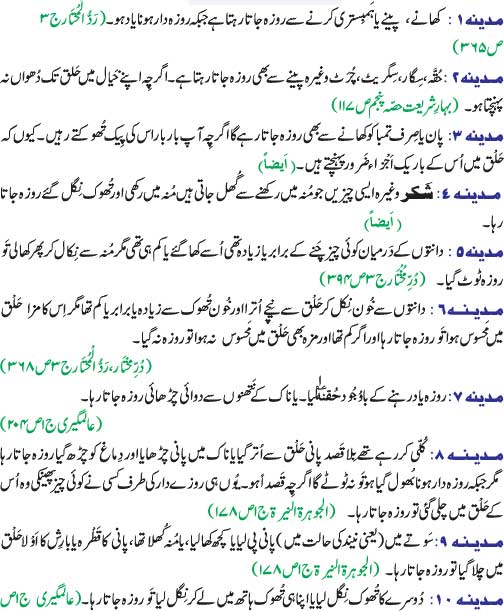
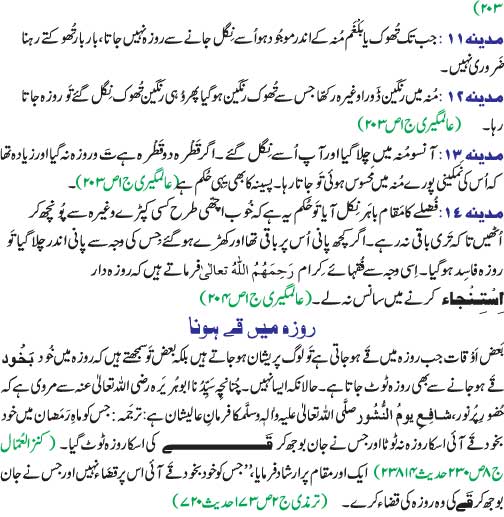
Ramadan – The Month Of Mercy And Repentance, The Month Of Qur’an
Ramadan, the month of mercy and repentance, the month of Qur’an. In the second year of Hijrah, Allah made it obligatory to fast during this month upon every mature, sane, and healthy Muslim.
Ramadan is the month of seeking forgiveness and protection from the Hell-fire. It is the month of repentance and acceptance of prayers. It is the month when the devils are chained, the gates of Hell are locked and the gates of Paradise are opened.
Ramadan is a month of worship. We should worship Allah sincerely, keep away from sins, spend night and day in prayer, supplication, and recitation from the Holy Qur’an.
Fasting is a shield from many sins and with which Muslims protect himself from the Hell-fire. Fasting is more than just abstaining from food. It also means to abstain from any falsehood in speech and action, from any ignorant and indecent speech and from arguments and quarrel. Therefore, fasting also helps to develop good behavior.
Fasting inculcates a sense of brotherhood and solidarity, as Muslim experiences what his needy and hungry brothers feel. This gives a new sense of togetherness and association.
Allah, the Almighty, said in the Qur’an, “The month of Ramadan in which was revealed the Qur’an, a guidance for mankind, and clear proofs for the guidance, and the criterion (between right and wrong)…” (Qur’an, 2:185)
As Ramadan is the month of the Qur’an, every Muslim should prepare himself to welcome the blessed month of Ramadan by strengthening his relationship with the Qur’an. A Muslim is encouraged to complete a full recitation of the Holy Qur’an during Ramadan.
Ramadan is also a month of charity and sympathy. Let’s give generously to the poor and share meals to break the fast together. Most Muslims also pay Zakah in the month of Ramadan.
Ramadan becomes a blessed month of physical, moral, and spiritual renewal through fasting, charity, and worship.
Bad Shaguni
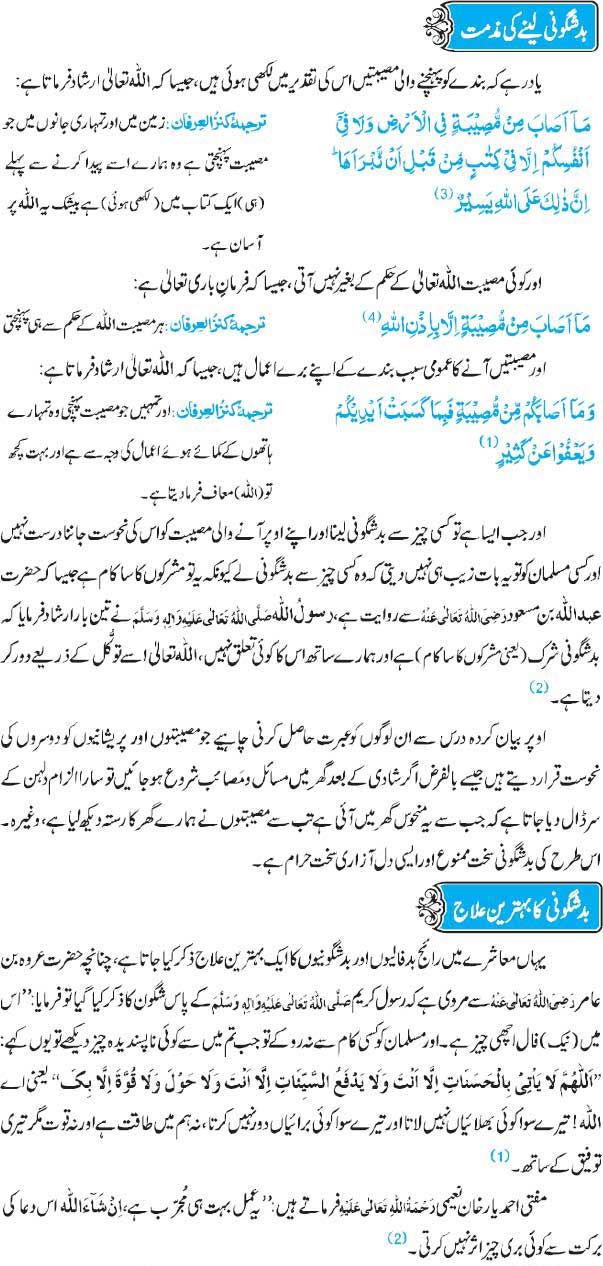
Why Forgive Others This Ramadan
The Prophet Muhammad (SAW – may the peace & blessings of Allah be upon him) said: Musa (AS – peace be upon him), the son of Imran once asked, “Oh my Lord! Who is the most honorable of Your servants? And He replied to the person who forgives even when he is in a position of power” (Baihaqi).
You know you’re right.
You know what I’m referring to – those times when you get into an argument(s) with a family member, friend, boss, employee, coworker, classmate, teacher, or whoever. You know your facts are right or that you’ve been wronged with an insulting remark, sarcastic comment, or rudeness.
And so, you choose to hold a grudge. After all, you’ve got a right to. Nobody should be treated this way. Why should you forgive? You’re not the one who started this. You’re not the one who doesn’t have the facts straight.
True. You may be right. You may be in that position of power mentioned in the Hadith above. But forgiving others, apart from positively affecting our health (less stress) and our minds (one less negative thing to focus on), is a necessary step to closeness to God.
How can we move up the ladder of spiritual development when we hold bitterness and anger towards another person? While we may have been in the right, is it worth sacrificing our energy on a grudge instead of on growth?
Is there not something strange about asking for God’s forgiveness of our sins while withholding our forgiveness from someone who has hurt us?
One of the distinguishing features of Ramadan is forgiveness. The Prophet explained in one Hadith that Ramadan is a month whose beginning is Mercy, Whose middle is Forgiveness, and whose end is freedom from the Hellfire. This makes it a great time to ask God for His Forgiveness. It’s also a wonderful time to open our hearts and cleanse them of grudges and bitterness by forgiving others.
Let us use these remaining days of forgiveness this Ramadan to open our hearts to those who have wronged us and forgive them as we beg Allah to forgive us.
Sehar o Iftar Kay Fazail

Ramadan: Time For Celebration
The month of Ramadan is a special season that signifies much for every Muslim who fasts in the day and volunteers other forms of worship at night. His motive is the great prize of forgiveness of past sins. As Ramadan is over, Muslims celebrate a festive season, called Eid Al-Fitr, or the feast that ends the fast. It is no wonder that the end of our month of Ramadan, which is a season of worship and blessing, is an occasion of festivity and celebration. Ramadan is certainly a hard month for Muslims. They have to resist their natural desires during its days and they are encouraged to spend at least part of each night throughout the month in voluntary devotion. All this comes on top of the normal duties of life, which makes the obligation of fasting and the recommended night devotion truly hard.
This, however, epitomizes the life of the Muslims who realize that there is always a higher aim to strive for. They look at themselves as trustees of God’s message. They call other people to it and struggle in order to make it known to all people, so that they may have a chance to accept it and reform their lives according to its principles. One can hardly find an advocate of Islam who has a casual attitude to life. The month of Ramadan, with its strong emphasis on the fulfillment of duties, is instrumental in the development of the serious attitude of Muslims. This is the reason why Muslims receive the month of Ramadan when it approaches with open arms, as it were. They go through it with patient perseverance because they realize that it is a season of great benefit to them. Self-discipline and the strengthening of their social ties are simply a part of the bargain. What is more is that for those who fulfill their duties with sincerity of intention and honesty of purpose, forgiveness of their past sins is guaranteed.
It is not surprising, therefore, that we celebrate the end of Ramadan. We welcome the fact that for the next eleven months we are free of the obligation of fasting, although we may volunteer to fast any time during the year, to gain more reward from God. But we celebrate, above all, our forgiveness. As human beings, we are always liable to err, indulge ourselves in some sinful practices or neglect our duties. Some of us are better than others with regard to adherence to the code of life God has provided for us. But we all make mistakes: A momentary distraction from the right course, a fleeting thought of sin or a sinful act of disobedience to God. All sorts of mistakes are possible. None of us is free from temptation; none is immune from falling. Hence, Ramadan provides us with a chance to wipe our slate clean, to feel that we are on the side of God, to renew our determination to follow the path He has set for us. After Ramadan, we feel as if we are born anew. Hence, we celebrate the Eid, as we visit one another, offering congratulations and blessings.
There is an important social aspect to the end of Ramadan and the approach of the Eid. As the Prophet has taught us, the acceptance of our fasting by God is made conditional on our payment of Zakah Al-Fitr. This is a prescribed charity, small in amount, but made obligatory to everyone who has more than enough for his family?s food on the last day of Ramadan. Moreover, everyone has to pay this charity on behalf of his wife and children as well as any other dependents he supports. Only those who do not have enough for their food are exempt, and those, as well as other poor people who may be less unfortunate, are the recipients of this noble act of charity. The idea is to relieve all poor people of the worries of their needs for this festive season. As the Prophet encourages us to pay this zakah to the poor, he makes its purpose very clear: “Make them rich for the day.’
Islam places a strong emphasis on the strengthening of social ties within the Muslim community. It does not like such a great occasion as Eid Al-Fitr, which marks the acceptance of the fast and the forgiveness of those who have carried out their obligations in the proper manner to pass while a section of the community is unable to take part in the festivity because of their need. Hence, the payment of Zakah Al-Fitr is made a religious duty, which is unique in all systems of taxation, religious or secular.
This zakah is imposed on people, not on their wealth or income. Thus, everyone, even babies born a minute before the Eid prayer, should pay this zakah, or have it paid on their behalf by their fathers or guardians. Some scholars are of the opinion that a prospective father should also pay it for his unborn child if his wife is pregnant.
The amount paid is estimated in measure. It should, preferably, be given in a measure of wheat, dates, barley, corn or rice, or any other product, which is considered the staple diet of a particular community. The measure is roughly equivalent to a little over two kilograms of wheat or four times the fill of the cupped hands of an average person. It is possible, according to an increasing number of scholars, to pay this zakah in cash, particularly where there is an abundance of shops and commodities. If in a certain community there are few shops, and commodities are scarce, then Zakah Al-Fitr must be paid in kind. A unique aspect of this form of charity is that some of those who receive it, the very poor, receive so much of the zakah of their fellow Muslims that they find themselves with more than they need for their food on the last day of Ramadan. Therefore, they become liable to pay this zakah to others who are less fortunate than they are.
The deadline for the payment of Zakah Al-Fitr is the Eid prayer, normally offered a short while after sunrise on the day of the Eid. As for the range of time allowed for its payment, it should be remembered that it is payable in the last few days of Ramadan. Some schools of thought allow their payment at any time during Ramadan.
One aspect of the blessings of Ramadan is that on the day when it is over, not a single person of the Muslim community goes hungry for the lack of food or because he is poor.
Nabi e Akram Aur Sahaba Kay Gharon Ki Saadgi
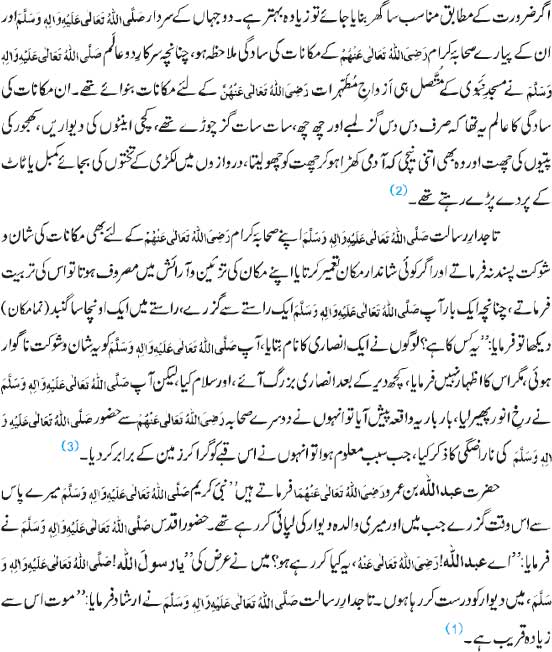
8 Things A Muslims Can Do To Counteract The Effects Of Stress
1. Increase dhikr (remembrance of Allah): “Those who believe, and whose hearts find satisfaction in the remembrance of Allah: for without doubt in the remembrance of Allah do hearts find satisfaction (Qur’an, 13:28).”
2. Increase prayers: “O you who believe! Seek assistance through patience and prayer; surely, Allah is with the patient (Qur’an, 2:153).” Regardless of the type of meditation, recent studies have verified the physiological effects of meditation. Most of those mediations consist of focusing on something, repeating some words and breathing (Greenberg, p.142, 143).
3. Perform ablutions: The most important component of relaxation is what Hans Loehr calls “the rituals of success.” These rituals may be as simple as making ablution; yet, they must be performed properly for it is not enough to pass water on the body parts – those parts must be massed.
4. Ask for forgiveness: Even if a person has not done anything wrong, he must ensure the forgiveness of Allah. “Then I said, ‘Ask forgiveness of your Lord; surely, He is the most Forgiving'” (Qur’an, 71:10).
5. Recite the Qur’an: The Prophet (SAW) said, “… Qur’an is a remedy for illnesses of the mind” (Bukhari). “The echo of sound has a medical effect and is now widely utilized,” says Dr. Greenberg. “The recitation of or listening to the Qur’an has an effect on the body, the heart and the mind! It is said that the letter Alif echoes to the heart and the letter Ya’ to the pineal gland in the brain. Dr Ahmed El Kadi of Akber Clinic (Panama City, FL) conducted and published the effects of listening to Qur’anic recitation on physiological parameters ( i.e., the heart, blood pressure, and muscle tension), and reported improvement in all factors, irrespective of whether the listener was a Muslim or a non-Muslim, Arab or non-Arab. Obviously, it can be postulated that those who understand and enjoy the recitation with a belief in it will get maximum benefits,” writes Dr Athar.
6. Make the hereafter one’s main concern: “Whoever has the hereafter as his main concern, Allah will fill his heart with a feeling of richness and independence; he will be focused and feel content, and this world will come to him in spite of it. Whoever has this world as his main concern, Allah will cause him to feel constant fear of poverty; he will be distracted and unfocused, and he will have nothing of this world except what was already predestined for him,” said the Prophet (SAW). One of the greatest causes of stress is money – how to pay the loans, whether one’s job will be lost, what will happen to the family if the father dies, etc.
7. Think positively: Muslims should forget about the bad things of the past and think of good things, always having hope that he can be better. Trying to change the past is a foolish and crazy waste of time, “for saying ‘if only…’opens the way to Shaytan” said the Prophet (SAW). The Prophet (SAW) also said, ” Know that victory (achievement) comes through patience and that ease comes through hardship.” Muslims understand that there’s no reason for panic in the case of crisis – no reason to be distressed or worried for we know that after hardship comes ease!
8. Do not waste time on thoughts of fear or stress: “The search of time is one of the most frequent causes of stress” (Seyle, p.102). Laziness is the mother of all evils, and the Prophet (SAW) used to seek refuge in Allah from it. Understanding that this life is short and time precious, Muslims should try to work hard and pursue worthy knowledge (Munajjid).

